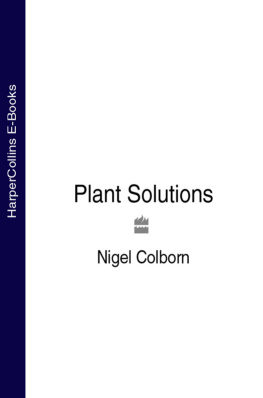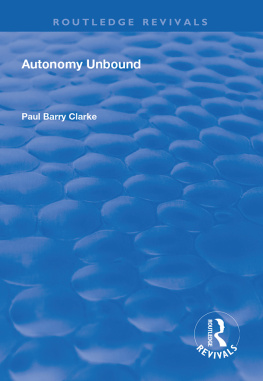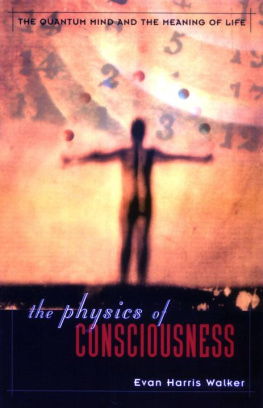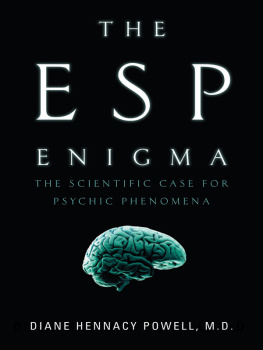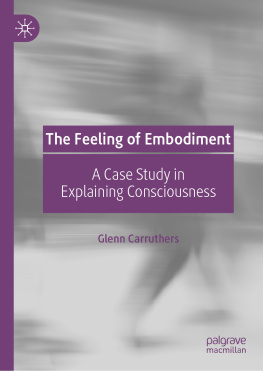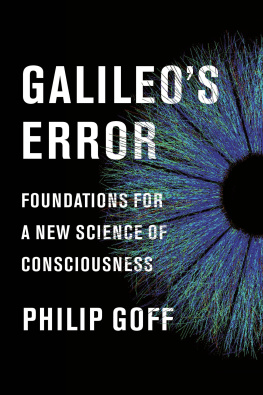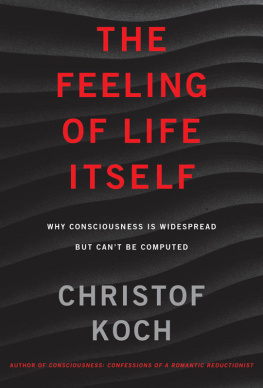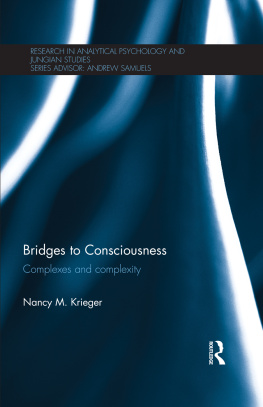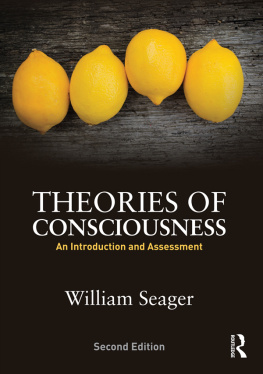Title Page
PLURALISM AND THE MIND
Consciousness, Worldviews and the Limits of Science
Matthew Colborn

imprint-academic.com
Publisher Information
Copyright Matthew Colborn, 2011
The moral rights of the author have been asserted
No part of this publication may be reproduced in any form without permission, except for the quotation of brief passages in criticism and discussion.
Originally published in the UK by Imprint Academic
PO Box 200, Exeter EX5 5YX, UK
Originally published in the USA by Imprint Academic
Philosophy Documentation Center
PO Box 7147, Charlottesville, VA 22906-7147, USA
Digital version converted and published in 2011 by
Andrews UK Limited
www.andrewsuk.com
Dedication
FOR MY PARENTS
Acknowledgments
This book has many sources, but owes a significant part of its origin to the Masters course in cognitive science at the University of Birmingham, attended in 19967, where I first grappled with the baffling mystery that is consciousness. Thanks to all my tutors there. The most recent inspiration was reviewing Edward and Emily Kellys Irreducible Mind for the European Journal of Parapsychology in 2009. This volume showed me that it was possible to formulate coherent alternatives to monistic physicalism, even though my views differ in some respects. Thanks also to the Society for Psychical Research for their support over the years.
I owe much to others scholarship, but especially that of M.R. Bennett, Walter Elsasser, Paul Feyerabend, P.M.S. Hacker, Mary Midgley, Karl Popper, Steven Rose, Robert Rosen, Raymond Tallis and B. Alan Wallace. People who have read portions of the manuscript and/or have been significantly influential in shaping the ideas expressed here include Henry Bauer, Susan Blackmore, Stephen Braude, Richard Broughton, Edward F. Kelly, Emily Williams Kelly, Alan Gauld, Elisabet Sahtouris, Rupert Sheldrake, Aaron Sloman, Paul Stevens and Charles Tart. Help and encouragement has been supplied at various times by Michael Brown, Rita Carter, Cal Cooper, William Edmondson, David Luke, Robert McLuhan, Sarah Proud, Serena Roney-Dougal, Adrian Ryan, Christine Simmonds and all the others who have accompanied me on this exploratory journey. Thanks especially to Paul and Charla Devereux for inviting me to attend a study day on consciousness in spring 2010, which got me over a serious case of writers block. Chapter five of this book owes a lot to that day. Thanks, too, go to Chris Roe and Simon Sherwood at the University of Northampton, who invited me to talk in the early stages of writing.
Thanks to my parents, who have supported me through some difficult times and especially my father, whose enthusiasm for this project has been one of the things that got me through to the end. Any mistakes, omissions or misinterpretations are my own. I have been as careful as possible with crediting sources, and any omissions will be corrected in future editions.
Introduction: The Persistent Question
The fundamental conceptions of psychology are practically very clear to us, but theoretically they are very confused, and one easily makes the obscurest assumptions in this science without realizing, until challenged, what internal difficulties they involve.
William James, Principles of Psychology , 1890
Introduction
This is a book about the mind and its place in nature. It is an attempt to bridge the yawning gap between personal experiences of consciousness and the images of mind that frequently appear in the literature of the various cognitive sciences. There is also the need to understand better why such a gap exists in the first place, and whether it canor shouldever be closed by a definitive theory of consciousness that is satisfactoryor at least plausibleto all. But to begin, here are a few examples of subjective experience.
The Mystery of Consciousness
1. The sky is pale blue today, with fluffy clouds. The sun is bright, and there is a slight bite in the air. A wind is blowing the late-summer leaves and the flowers on the patio out of my window are bright red. Every so often, a nearby workman operates an electric cutter that makes the hairs on the back of my neck stand up. Its a relief when the motor stops, because you can hear the birds.
2. Yes because he never did a thing like that before as ask to get his breakfast in bed with a couple of eggs since the City Arms hotel when he used to be pretending to be laid up with a sick voice doing his highness to make himself interesting for that old faggot Mrs Riordan that he thought he had a great leg of and the never left us a farthing all for masses for herself and her soul greatest miser ever was
3. About two years ago, while on holiday in Cornwall, I went for a walk with my sister along the beach My sister walked on in front of me; I was left alone. It was as if time had stood still. I could think of nothing, I only felt I was somewhere else. I was part of something bigger and absolutely beyond me. My problems and my life didnt matter at all because I was such a tiny part of a great whole.
4. And there were always choices to make. Every day, every hour, offered the opportunity to make a decision, a decision which determined whether you would or would not submit to those powers which threatened to rob you of your very self, your inner freedom; which determined whether or not you would become a plaything of circumstance, renouncing freedom and dignity to become molded into the form of the typical inmate.
5. As the drug [an anaesthetic] began to work, I slipped down and lost awareness and feeling of my body. Visual impressions were relatively Spartan, but were mostly beige. Had experience of white darkness at one point, and complex patterns in dark brown against white beige very like the side-decorations in Tibetan art
Reality felt gooey, or made of ice cream mixed with syrup. Feelings: at one point, I remember smiling and saying that I knew what the Buddhists were talking about. It was like Id climbed a mountain to see a vast plain of reality and that it was good and light These are metaphors; what I experienced, for fleeting moments, was ineffable.
All five of the previous paragraphs describe different types of subjective experience. The first is a simple description of what lies outside my window. The second is a quotation from the novel Ulysses (1922) by James Joyce, which records the ramblings of the sleeping mind of Molly Bloom. The third is a description of a spontaneous mystical experience. The fourth is from Victor Frankls Mans Search For Meaning , describing everyday life in Auschwitz, and the final one is an account of the extraordinary distortions of consciousness that occur when an hallucinogenic drug is administered. And these paragraphs are just pallid representations of the rich and various subjective experiences that are possible for a human being.
Scientists today are in many respects poorly equipped for the investigation of subjective experience, and a cursory look at the literature reveals a mind that seems in some respects quite removed from the rich, organic and multifaceted experiences above. Compare 15 with the following quotes:
A. It seems to me to make no sense (in scientific terms) to try to distinguish sharply between acts that result from conscious intention and those that result from our reflexes or are caused by disease or damage to the brain.
B. the mind is fundamentally a sentient computing device, taking sentences as input from sensory transducers, performing logical operations on them, and issuing other sentences as output.
C. the [Robotic system] CADBLIND Mark I certainly doesnt have any qualia So it does indeed follow from my comparison that I am claiming that we dont have qualia [i.e. private, ineffable, subjective experiences] either. The sort of difference that people imagine there to be between any machine and a human experiencer is one I am firmly denying: There is no such sort of difference. There just seems to be.
Next page

